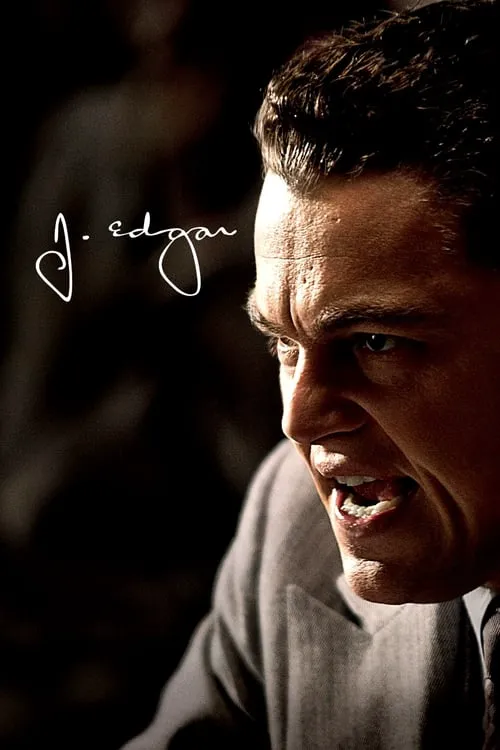J. Edgar

Plot
The film 'J. Edgar' is a 2011 historical drama that delves into the life of John Edgar Hoover, the long-serving Director of the Federal Bureau of Investigation (FBI) in the United States. Directed by Clint Eastwood and written by Dustin Lance Black, the movie offers an intimate portrayal of Hoover's life, revealing the complexities and contradictions that defined him. The film begins in 1938, where we see a younger Hoover (played by Armie Hammer) arriving at the Department of Justice as the Assistant Director of the Bureau of Investigation (BOI), the precursor to the FBI. Hoover is a driven individual, obsessed with the ideals of justice and order, and it's clear that he sees himself as the guardian of America's moral fabric. As Hoover rises through the ranks, we see glimpses of his obsessive personality, his fear of being replaced, and his relentless pursuit of power. The film also introduces his partner, Clyde Tolson (played by Leonardo DiCaprio), a gay man who becomes Hoover's closest confidant and ally. The nature of their relationship is ambiguous, leaving the audience to infer their romantic connection. Hoover's tenure as FBI Director is marked by some of the most tumultuous periods in American history. The movie touches upon his struggles against organized crime, the Mafia, and the rise of communism, depicting Hoover as a champion of law and order. However, it also reveals his role in the persecution of left-wing activists, his involvement in the Red Scare, and his relentless scrutiny of Martin Luther King Jr., which adds a layer of complexity to his character. One of the most significant aspects of the film is its portrayal of Hoover's closeted nature. The movie implies that Hoover's repression of his own desires led to his obsessive behavior, his paranoia, and his relentless pursuit of control. The tension between Hoover's desire for power and his need for secrecy creates a sense of claustrophobia, mirroring the feelings of isolation and loneliness that defined his personal life. The film also explores Hoover's relationship with his mother, Annie Hoover (played by Judith Roberts), a dominant force in his life. His complex dynamic with his mother serves as a backdrop for his relationships with other women in his life, including his secretaries, particularly Helen Gandy (played by Naomi Watts) and Dorothy King (played by Scruggs). The film's most poignant moment comes when Hoover is seen in his 60s, as depicted by Hoover in the present day, in a voiceover by DiCaprio. In this scene, Hoover reflects on his legacy, his love for Tolson, and the secrets he has kept. This moment serves as a poignant reminder of the human cost of his ambition and the toll it took on his personal life. Throughout the film, Eastwood's direction is masterful, often using subtle gestures and facial expressions to convey the emotions of the characters. DiCaprio delivers a nuanced performance as Hoover, capturing the complexity and vulnerability of a man torn between his desire for power and his need for acceptance. In conclusion, 'J. Edgar' offers a thought-provoking and intimate portrayal of one of America's most enigmatic figures. The film raises questions about the nature of power, the cost of ambition, and the human cost of keeping secrets. As a historical drama, it is a powerful exploration of the life of John Edgar Hoover, revealing the contradictions that defined him and the impact they had on his personal and professional life.
Reviews
Recommendations




